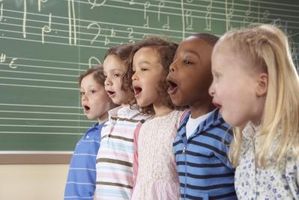Music emerging as a key to helping kids in the developing world
 Music is increasingly playing an important role in education, social and health and wellbeing campaigns being delivered to children in the developing world.
Music is increasingly playing an important role in education, social and health and wellbeing campaigns being delivered to children in the developing world.
US-based charity The Global Fund for Children (GFC) has invested more than $30 million in small, agile, community-based organisations worldwide that are using innovative methods to directly address the needs of children in their communities.
Many of these organisations have incorporated music into programs that help vulnerable young people overcome challenges that could derail a bright future.
GFC Executive Vice President Victoria Dunning says music will be a focus for the organisation into the future as it pursues its mission is to transform the lives of the world’s most vulnerable children.
“Music education has been shown to improve brain development and improve memory in young children. And, as we have seen among GFC partners, music also feeds children’s souls and hearts,” Ms Dunning said.
“For most children, music is one of their earliest experiences. Whether raised in poverty or luxury, children around the world are soothed to sleep by the sound of their mothers’ singing or humming.
“As they grow, most develop their innate instincts to sing, to dance, to bob their heads to rhythms of music. And for some children, music can become their path out of poverty or hopelessness,” she said.
Among the not-for-profit organisations that GFC supports is the Jiuqian Volunteer Centre.
Based in Shanghai, Jiuqian uses the power of singing to improve the lives of underprivileged children.
The organisaion believes that singing in a choir gives children a close-knit environment that fosters educational and emotional growth.
Choir members, most of whom are the children of migrant workers, receive medical care and tutoring as part of the program. Children of migrant workers are usually poorer than their peers and frequently live in unsafe housing, lack adult supervision, and do not have access to quality education.
In another initiative, indigenous parents in Pisac, Peru, formed the Asociacion Educativa Kusi Kawsay (Happy Life Educational Association) because they were dissatisfied with the lack of appreciation in schools for traditional Andean values, culture and way of life.
They established a school where children aged three to 16 study the Quechua language and traditional music and art, along with a curriculum that satisfies the national Peruvian education requirements.
Most school events include Andean music and dance. In 2012, Kusi Kawsay was named a UNESCO Associated School.
In the past two years, the school has seen tremendous changes in the children and their families, including improved health, more involved parents, increased self-esteem, and higher academic testing scores.












